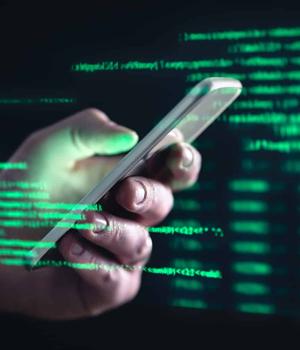Security News > 2002 > September > Secret Service patrolling for unsecured wireless networks

Forwarded from: William Knowles http://www.nandotimes.com/technology/story/555541p-4378549c.html By D. IAN HOPPER, AP Technology Writer WASHINGTON (September 29, 2002 1:56 p.m. EDT) - Secret Service agents are putting a high-tech twist on the idea of a cop walking the beat. Using a laptop computer and an antenna fashioned from a Pringles potato chip can, they are looking for security holes in wireless networks in the nation's capital. The agency best known for protecting the president and chasing down counterfeiters has started addressing what it calls one of the most overlooked threats to computer networks. "Everybody wants wireless, it's real convenient," Special Agent Wayne Peterson said. "Security has always been an afterthought." The effort is part of a new government plan to build relationships with businesses so that they will feel more comfortable reporting hacking attempts to authorities. Recent anti-terrorism legislation gave the FBI and Secret Service joint jurisdiction over electronic crimes. Wireless networks are cheap; a small one can start at less than $200. They make it easy for workers to wander around with their laptop or handheld computers and for visiting employees with their own computers to get on to the local office network. These networks are becoming common in airports, universities, coffee houses, businesses, homes and even some public squares. But they are sold with no security measures, and protecting a wireless network from hackers takes more knowledge than what network installation guides typically offer. Because of security concerns, the White House recently proposed banning some wireless networks in federal agencies. Faced with industry protests, the administration dropped the idea when it released a draft version of its cybersecurity plan this month. That has led some independent security researchers to drive - or even use a private plane to fly - through cities to map networks. Those maps, which are usually posted on the Internet, show where a person can get a free Internet connection on a private network. The Secret Service wants to let businesses know that their Internet connections and private networks might be at risk. Companies informed about security holes can reconfigure their networks to make them more secure. Peterson's tools are a laptop, a wireless network card and one of three antennae mounted on his car. One is a small metal antenna; the second is a large, white, 2-foot-tall tube; the third is a homemade antenna made out of a Pringles can. They boost the reception of his wireless network card, allowing the agent to point them in different directions to get the best signal. A Pringles can is ideal because of its shape - a long tube that lets someone to point it at specific buildings - and its aluminum inner lining. It acts like a satellite dish, collecting signals and bouncing them to the receiver, which is then wired into a laptop. Peterson recently drove down a major Washington street and found over 20 wireless networks, many of which had no security at all. Peterson said his probes are part of good police work, like a patrolman driving through a neighborhood. "I feel it is part of crime prevention to knock on the door," Peterson said. The act of "wardriving," a term taken from older "wardialing" programs that called random telephone numbers looking for unlisted modems, has become so prevalent that enthusiasts are using chalk marks on streets and sidewalks to point out networks in public places. Peterson said there has not been any reported "warchalking" in the Washington area yet, but if one was found, agents would alert the network owner. Chris McFarland, head of the Secret Service's Electronic Crimes Task Force, said his agents have begun evaluating computer security along with other concerns when they scout out a place where the president or other protected dignitary will go. McFarland said, for example, that agents have had extensive discussions with officials at George Washington Hospital about improving its wireless network security. While the agents plan to offer their expertise to anyone who asks, they are focusing on places most important to their mission of protecting public officials. The hospital is several blocks from the White House and treated Vice President Dick Cheney during his heart problems. Agents also checked out computer systems at the Salt Lake City Olympics, last year's Super Bowl and the World Bank in advance of weekend protests. "People can wreak havoc with these systems very easily," McFarland said. "It's almost like triage." *==============================================================* "Communications without intelligence is noise; Intelligence without communications is irrelevant." Gen Alfred. M. Gray, USMC ================================================================ C4I.org - Computer Security, & Intelligence - http://www.c4i.org *==============================================================* - ISN is currently hosted by Attrition.org To unsubscribe email majordomo () attrition org with 'unsubscribe isn' in the BODY of the mail.
News URL
http://www.nandotimes.com/technology/story/555541p-4378549c.html